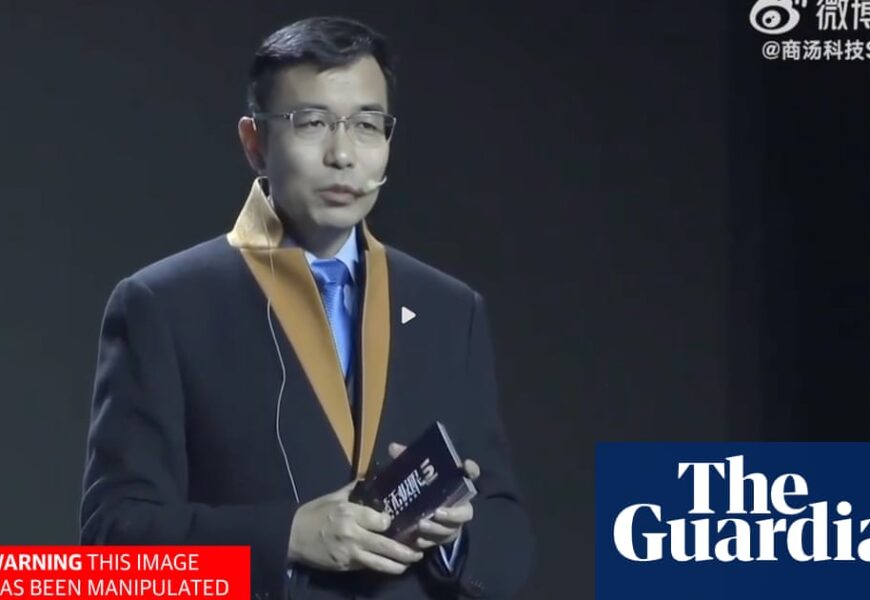As China observes the annual tomb-sweeping festival, a novel approach to commemorating departed loved ones is emerging. Rather than traditional rituals, Chinese individuals now have the option to create a digital avatar of their ancestors for a nominal fee, enabling them to engage with their memories in a new way.
At the forefront of this trend is the utilization of artificial intelligence, where innovative mourners are harnessing technology to connect with their deceased relatives. For instance, Taiwanese singer Bao Xiaobai embarked on a remarkable journey to “resurrect” his late daughter using AI. Despite having only a brief audio snippet of her voice, Bao dedicated over a year to experimenting with AI algorithms. His efforts culminated in a heartwarming video featuring his daughter singing a birthday song to her mother, a touching tribute that resonated deeply with many.
The interest in digital replicas of the departed coincides with the rapid expansion of China’s AI industry, particularly in the realm of human-like avatars. With the market for “digital humans” estimated at 12 billion yuan in 2022 and projected to quadruple by 2025, it is evident that this technology is gaining significant traction. Chinese tech companies, leveraging the expertise gained from the booming livestreaming sector, are at the forefront of creating lifelike digital entities.
SenseTime, a prominent AI firm in China, recently showcased its prowess in this domain by presenting a speech from its deceased founder, Tang Xiao’ou, at the company’s annual general meeting. Tang’s digital clone, trained meticulously by SenseTime’s engineers using advanced machine learning models, delivered an inspiring message to employees, illustrating the seamless integration of AI into various facets of life.
As the tomb-sweeping festival unfolds, the integration of AI technology offers a unique opportunity for individuals to reconnect with their departed loved ones. While some view this as a comforting way to honor memories, concerns have been raised regarding the ethical implications of creating digital replicas without proper consent. The debate surrounding the regulation of such content continues to evolve, underscoring the complex interplay between technology and emotional well-being in contemporary society.
Amidst these discussions, it is clear that China’s digital landscape is evolving rapidly, with digital afterlives becoming a subject of intrigue and contemplation for both the bereaved and policymakers alike. The cultural significance of these technological advancements underscores the need for a nuanced approach that balances innovation with ethical considerations.
Additional research by Chi Hui Lin










